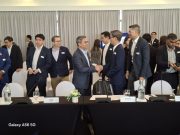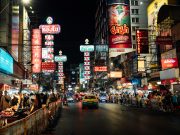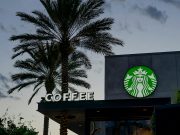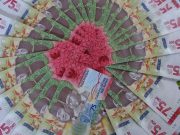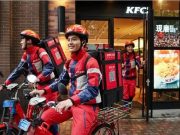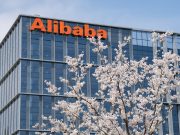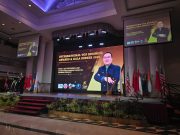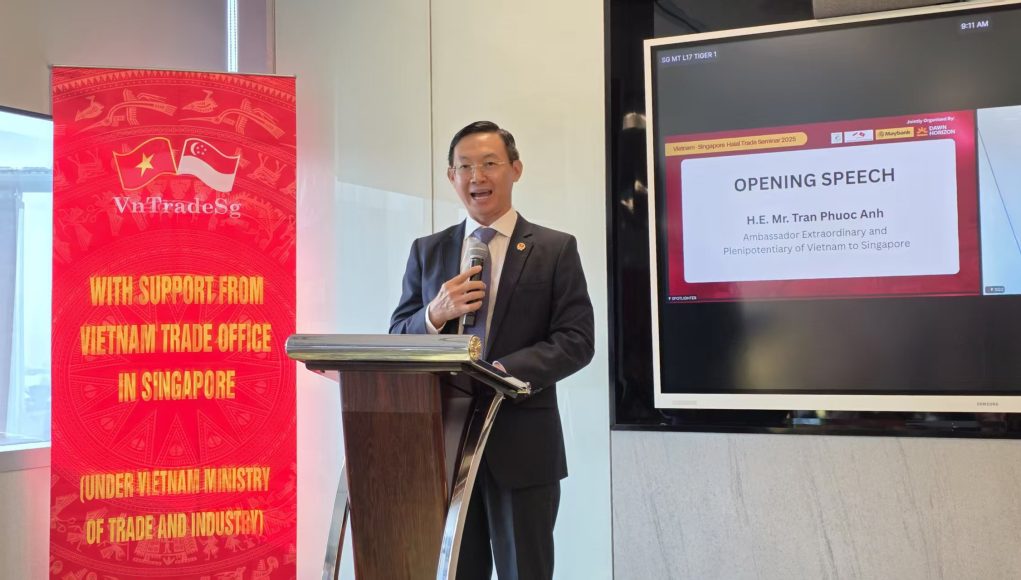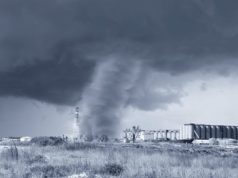(Singapore, 24.05.2025) Today, the hybrid “Vietnam-Singapore Halal Trade Seminar 2025” is held at the Maybank Tower in Singapore, bringing together around 170 guests both in-person and online. The event gathered key representatives from government agencies, certification bodies, the financial sector, industry experts, and business leaders from both countries, underscoring a shared commitment to advancing the high-quality development of the regional halal industry.
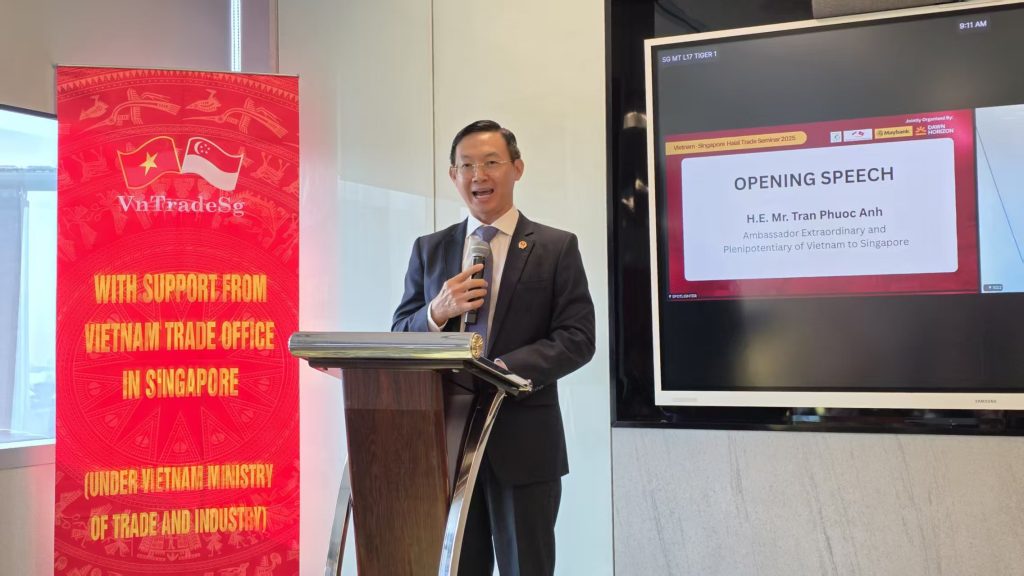
In his opening remarks, Vietnamese Ambassador to Singapore Tran Phuoc Anh emphasized the strong trust and growing economic ties between the two countries. He noted Singapore’s role as Vietnam’s top ASEAN investor, with over 4,000 projects since 2020. With the National Strategy for Halal Industry Development 2030, Vietnam aims to establish a global halal certification system and leverage Singapore’s strengths as a gateway to ASEAN and global markets.
In an interview with Fortune Times, H.E. Tran elaborated on Vietnam’s strategic vision for halal industry development, that Vietnam is witnessing a surge in Muslim tourist arrivals, particularly in cities like Ho Chi Minh City and Hanoi, with visitors from Malaysia, Indonesia, Singapore, the Middle East, and Brunei. Moreover, halal is not limited to food—it encompasses tourism, pharmaceuticals, cosmetics, and more. “Vietnam has the capacity to produce halal-certified goods, which can support both domestic demand from the tourism sector and global exports. Our geographical proximity to Singapore presents a natural opportunity to leverage Singapore as a hub to distribute Vietnamese halal products to key Muslim markets like Malaysia, Indonesia, the Middle East, and Africa.” He added.
Cao Xuan Thang, Director of the Vietnam Trade Office in Singapore, shared that in 2024, bilateral trade between Vietnam and Singapore reached SGD 31.67 billion, up 9.5% year-on-year. Vietnam’s exports to Singapore totaled SGD 27.86 billion, while Singapore’s exports to Vietnam were SGD 23.8 billion. He highlighted Vietnam’s strengths in agriculture, food processing, and halal supply chains, noting that over 60% of Vietnam’s provinces can produce halal products. In Q1 2025, Vietnam was Singapore’s fourth-largest seafood supplier. With over 90% of Singapore’s food dependent on imports, Vietnam is seen as a key partner.
The global halal market is growing up rapidly. Statistics show that the global Muslim population is expected to reach 2.7 billion by 2030, with the halal food market projected to grow from USD 1.3 trillion in 2023 to USD 2.7 trillion by 2030. The halal fashion sector is estimated to reach USD 570 billion, while halal pharmaceuticals and cosmetics continue to show strong growth. Cao called on enterprises from both countries to seize the vast opportunities across food, fashion, pharmaceuticals, media, and finance.
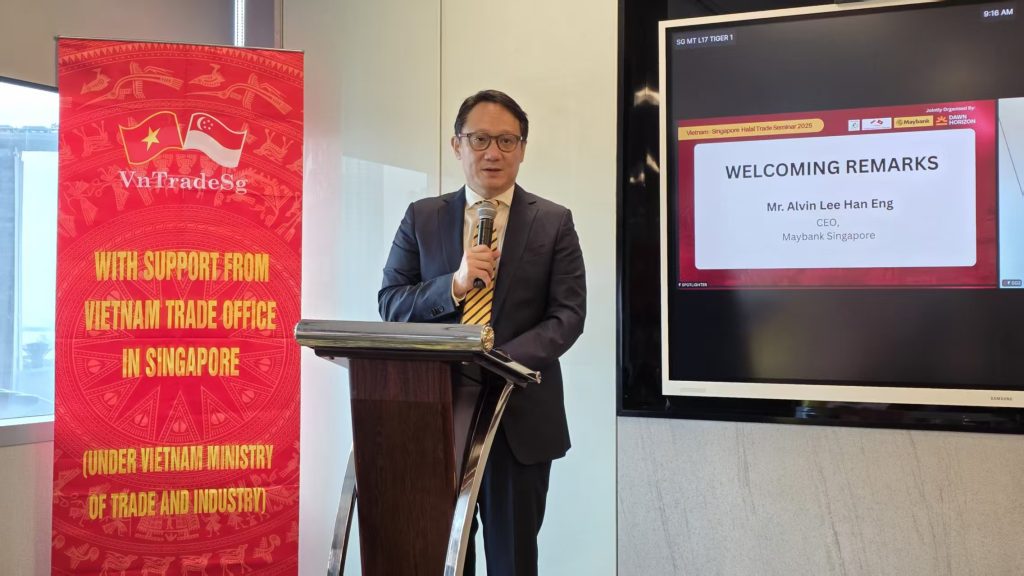
As a financial services provider, Maybank has established branches across all 10 ASEAN countries, including Ho Chi Minh City and Hanoi in Vietnam, and is the largest Islamic banking player outside the Middle East.
Given the growing population and the rising Muslim economy, Alvin Lee Han Eng, CEO of Maybank Singapore, said the bank has been deeply involved in Islamic banking and wealth management for years. He stressed that Islamic banking is not just about religion—it reflects strong ethical values, ensuring funds are used for good causes, with donations directed to deserving charities. Maybank also avoids investments in controversial industries, keeping a clear focus on supporting society.
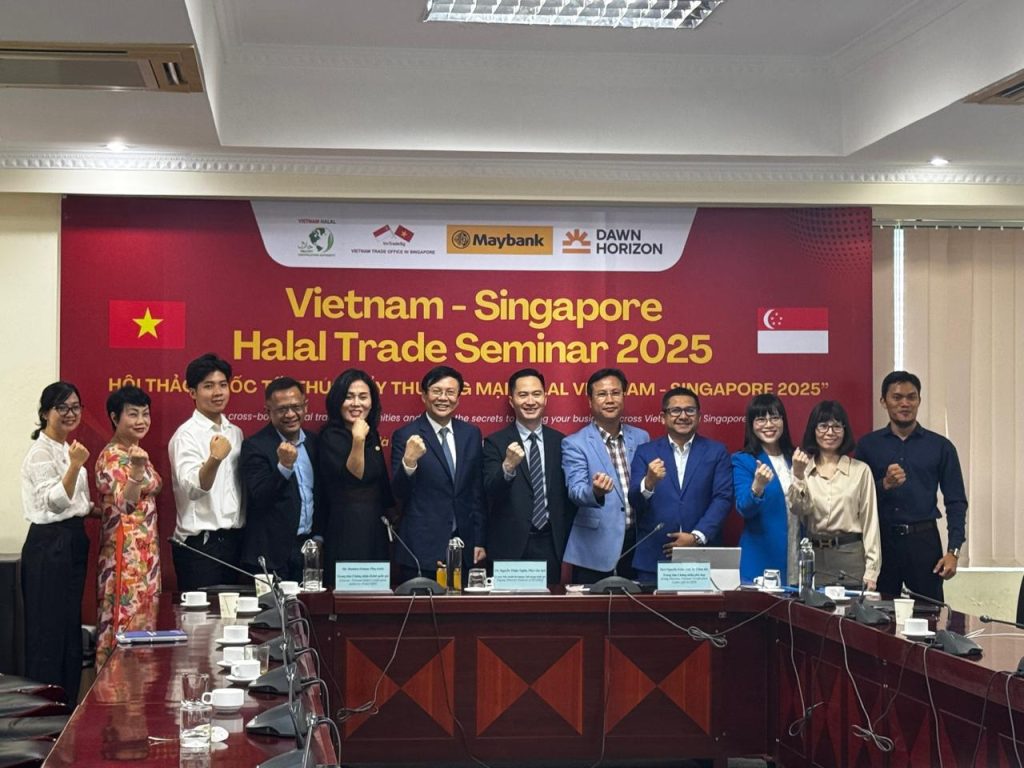
The seminar also featured a panel discussion. Mr Faizal Othman, Director of Halal Development at the Islamic Religious Council of Singapore, stressed the importance of compliance: “Halal is not just a label—it’s a comprehensive quality management system covering sourcing, production, logistics, and sales. Businesses must embed halal requirements into product design, not as an afterthought.”
Dewi Suratty, Founder & CEO of DAWN Horizon, underscored that halal certification is about more than compliance; it reflects a company’s social responsibility and transparency. She noted, “Consumers care not only about the halal logo but also how companies handle product safety, whether they are transparent, and whether they demonstrate social responsibility. When issues arise, how a company responds and takes accountability is key to earning long-term trust.” Dewi also advocated for greater support for SMEs, suggesting shared halal resources, certification guidance, and talent training as means to lower barriers and build a healthier halal ecosystem.
Joining the panel virtually from Vietnam, Ramlan Osman, Director of Vietnam Halal Certification Authority (HALCERT), shared insights on promoting mutual halal recognition. He proposed a “Vietnam-Singapore Halal Industrial Park” inspired by the success of the Vietnam-Singapore Industrial Park (VSIP). “Vietnam’s rich agricultural resources and vast industrial land make it ideal for building a regional halal hub. We hope to launch the Halal Industrial Park within five years to drive an integrated, standardized, and internationalized halal supply chain,” he said.
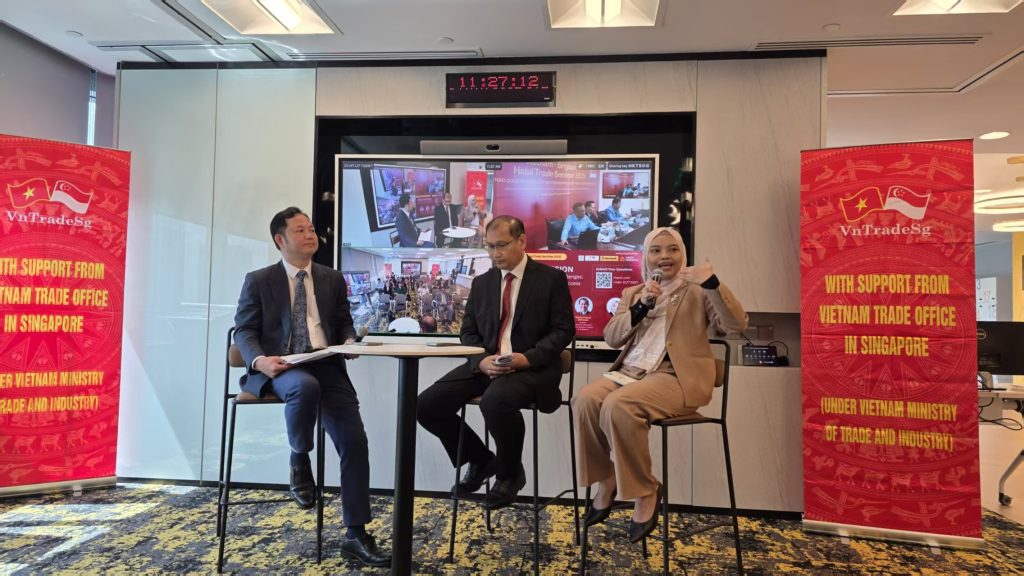
Dewi echoed this vision, emphasizing that a halal park must offer real value to businesses: “It’s not just about allocating land. The park should integrate shared services, provide professional advisory, and foster collaboration between large corporations and SMEs to drive supply chain synergy.” She suggested a model where flagship companies lead the ecosystem, supported by SME clusters, to build a vibrant and diversified halal economy.
Jointly organized by HALCERT, the Vietnam Trade Office in Singapore, Maybank, and DAWN Horizon, the seminar provided valuable insights and practical guidance for businesses seeking to navigate the halal market. Participants expressed their commitment to further deepening collaboration, exploring new business opportunities, and promoting mutual economic growth.


